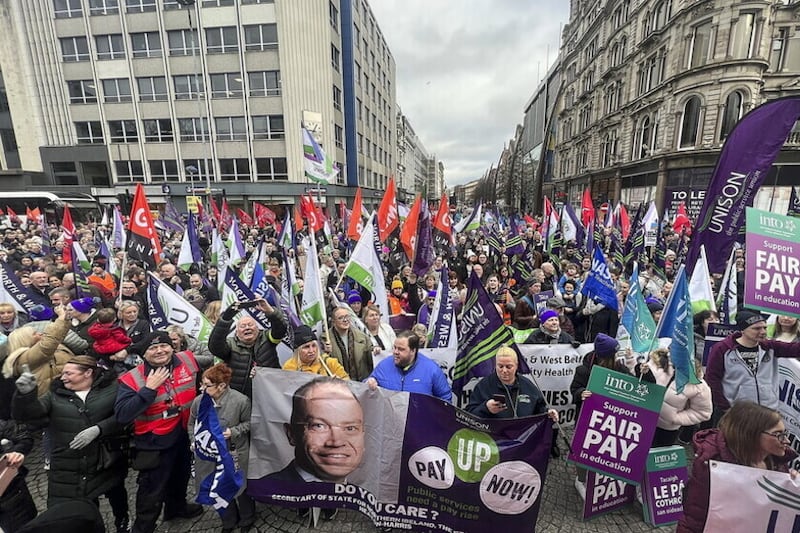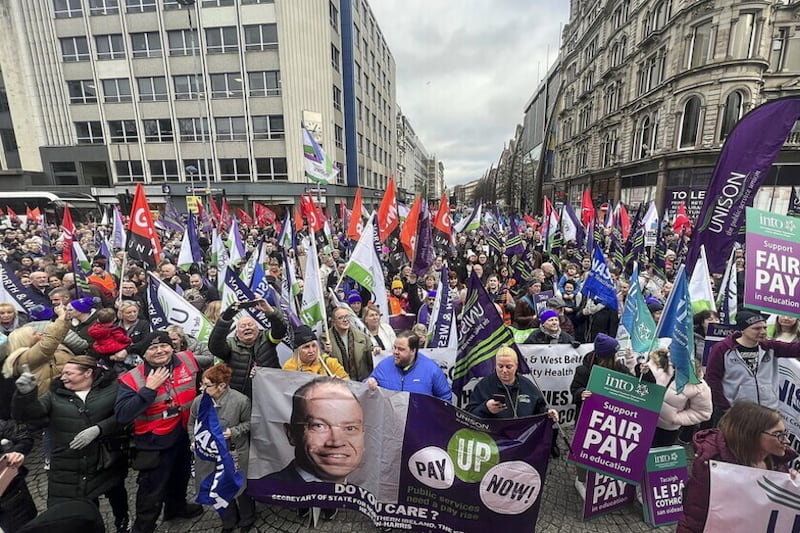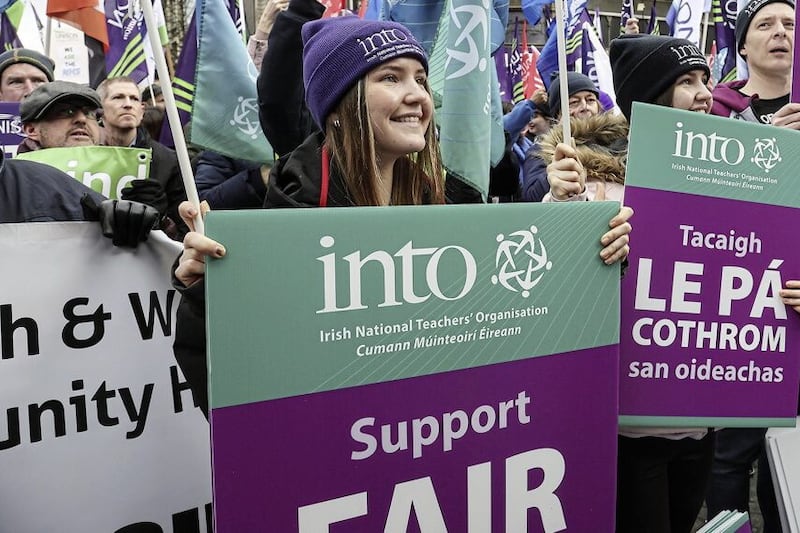Teachers across Northern Ireland are set to stage five days of strike action in a long-running dispute over pay.
The first day of industrial action will take place next week when members of five of the north's teaching unions will strike for 12 hours from midnight on November 29.
The Northern Ireland Teachers' Council (NITC), comprising the five recognised trade unions, said members would also strike for four full days next Spring on dates to be agreed.
The industrial action was confirmed by the NITC, on behalf of the UTU, NASUWT, INTO, NAHT and NEU unions, at a press conference on Monday.
The NITC said the action is being taken "given that there has been no progress toward a resolution to the ongoing teachers’ pay dispute".
It said they have informed employers of the strike planned for next week and a "further escalation to the action" being planned for the Spring term.
Teachers, along with other public sector workers in Northern Ireland, have been involved in industrial action in recent months amid ongoing disputes about wages and conditions.
Read more:
Teachers and lecturers across NI set to take part in full-day of strike action
Five teaching unions to strike for full day on April 26
Half-day strike by majority of teachers on February 21
Members of the UTU, NASUWT, INTO and NEU went on strike in February.
They were joined in further industrial action in April by the NAHT, which went on strike for the first time in its history in relation to pay, leading to the closure of most schools in Northern Ireland.
Pressure on public finances in Northern Ireland has meant it has not been possible to offer a pay award to public sector workers this year.
Jacquie White from the UTU and chair of NITC said: “Teachers and school leaders have been on action short of strike for more than a year, and there is no sign that the Department of Education or the Secretary of State are in any rush to settle this dispute.
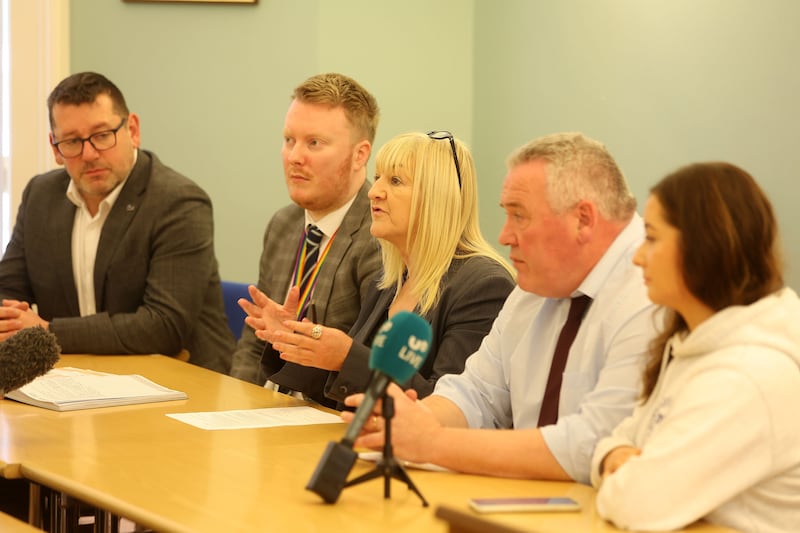
"It is high time they realised that our members are serious about seeking an urgent resolution to this untenable situation, and for that reason we are announcing five days of strike action.
"No teacher wants to take this action; however, we now feel that management side has left us with no other option.”
Justin McCamphill from the NASUWT said the "pay gap for teachers across the UK has now reached epic proportions".
"Teachers simply cannot continue as if everything is normal," he said.
"Teachers are angry and are prepared to step up strike action in order to achieve a level of pay which allows them to provide for their families.
"Urgent action is now needed to address our concerns."
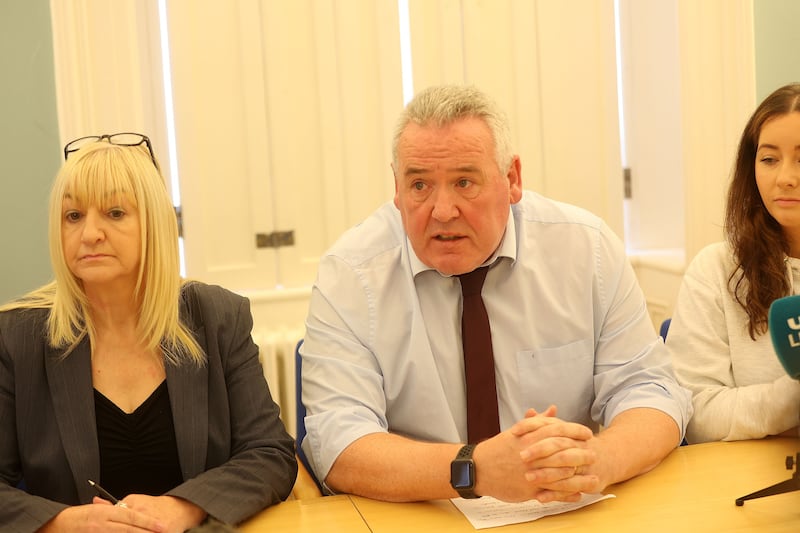
Mark McTaggart from the INTO said: "Teachers have a right to receive a salary that truly reflects their value to society.
"The continued failure by those who hold the purse strings to provide this has the potential to have a devastating effect on the life chances of the children and young people in their care.”
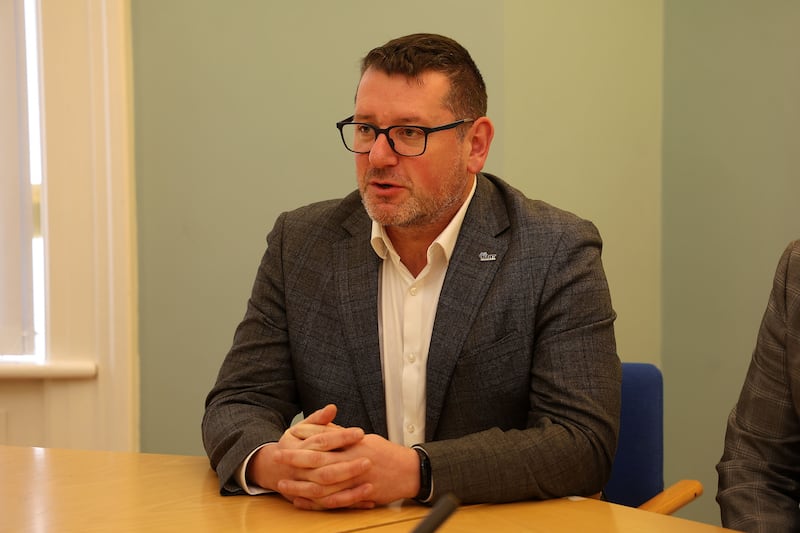
Graham Gault from the NAHT said teachers in Northern Ireland had waited three years for a pay rise.
"In this time, as colleagues in every other jurisdiction on these islands have seen successive increases in remuneration, the teaching profession in Northern Ireland has been left very far behind," he said.
"The status quo is intolerable and simply will not be accepted. Today's announcement must be a turning point."
Pauline Buchanan of the NEU added: "Teachers carry out vital work for the children of today, the workforce of tomorrow and shape education for generations to come and deserve at the very least, a decent pay rise - now".
A Northern Ireland Office (NIO) spokesperson said: "The UK government has no authority to negotiate pay in Northern Ireland - it will be for the NI Department of Education to make final decisions on teachers' pay policies.
"It remains the Secretary of State's priority to see the return of locally elected, accountable and effective devolved government, which is the best way for Northern Ireland to be governed.
"The Secretary of State has commissioned a range of information and advice from the Northern Ireland civil service on potential measures to raise more public revenue, or otherwise to improve the sustainability of public finances in Northern Ireland, for an incoming executive to consider."



